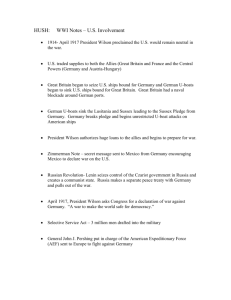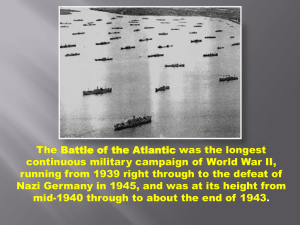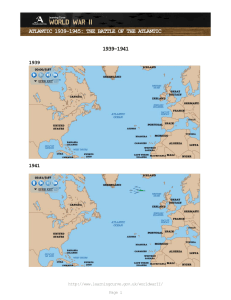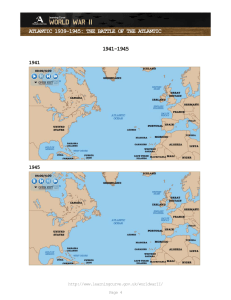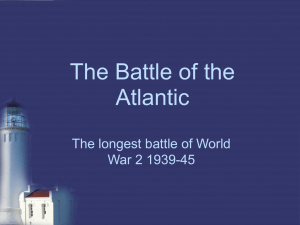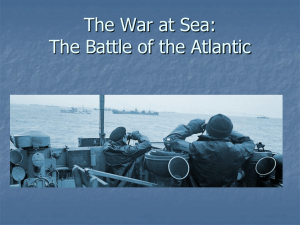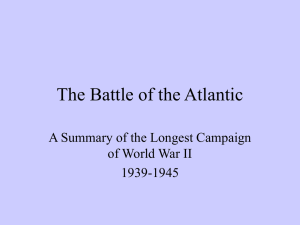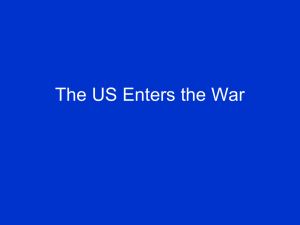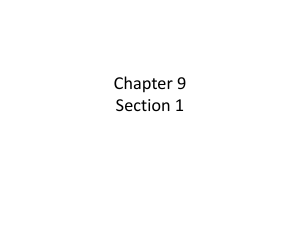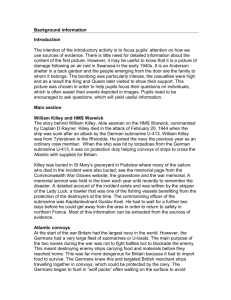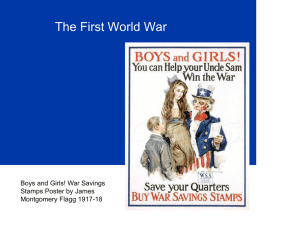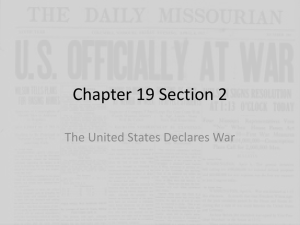The_Battle_of_Atlantic
advertisement
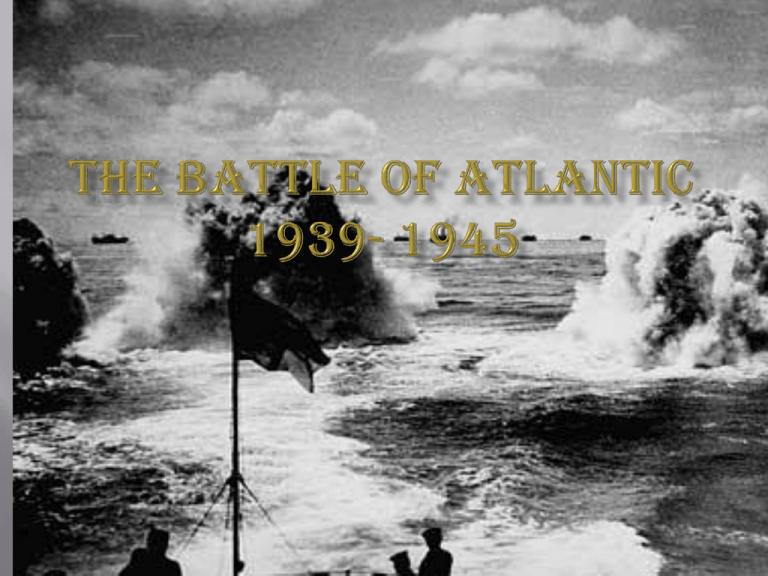
Germany England Soviet Union Canada It started on September 1939- May 1945 It was at the Gulf of St. Lawrence in Germany In 1941 more ships were placed in convoys, that now escorted all the way across the Atlantic By the help of developing technology the convoys routed around the Germans U-boats. By the late 1942, the U-boats returned in larger number to the midAtlantic They were searching for weakness in convoy defence, that could be exploded by “wolf packs” of U-boats Britain lost ability to decode U-boat signals They were too many U-boats to avoid Britain again broke German codes RAF agreed to help escort in the “black hole” The Allies won the battle at a terrific price, and the food fuel and war supplies continued to flow throughout WWII Mainly between German U-boats and the British Royal Navy and the United States Navy. The key for the Allied navies was to get supply convoys across the Atlantic Ocean, while the German navy, mainly with U-boats, tried to cut off Great Britain Longest Campaign in WWII Causes Effect Germans, British, and U.S all had powerful navies Caused a oceanic war between them The U.S had to support the British by sending supplies The US transporters needed to be defended by their navy because they were often attacked by the German navy. Germany lost the battle Complete surrender to Britain The Allies depended on the cross Atlantic convoys to get : - much needed supplies and food for Britain - the equipment that was used by the Allies in the battle - 60% of men (who were involved in war) Europe needed war materials made in North America, that came across the Atlantic Ocean on a ship The ships were escorted by convoys. Majority of those ships were part of the Royal Canadian Navy. Men were shipped to Europe through the Atlantic The winter caused a lot of problems , so in order to survive it the RCN escort ships needed to be tough and hard and determined They did this for years and kept on getting better Britain (and the Soviet Union NEEDED supplies Germany was attacking the supply ships (commerce raiding) If the battle was lost, the Britain might not be saved “What a miserable, rotten hopeless life . . . an Atlantic so rough it seems impossible that we can continue to take this unending pounding and still remain in one piece . . . hanging onto a convoy is a full-time job . . . the crew is almost a dream from the night marishness of it all . . . and still we go on hour after hour.” -Frank Curry This cartoon shows two boxers, one of them represents the 'ships' of the Allies and the other one symbolizes the German 'U-boats'. It depicts that the Allies' 'shipping' is losing and even though they are working on it…it still needs more help. This cartoon is encouraging people/politicians to help the Allies more. http://www.vacacc.gc.ca/remembers/sub.cfm?source=history /secondwar/atlantic http://www.vacacc.gc.ca/remembers/sub.cfm?source=history /secondwar/atlantic/atlanticvid http://www.thecanadianencyclopedia.com/in dex.cfm?PgNm=TCE&Params=A1ARTA00003 79 http://www.loc.gov/rr/print/swann/herbloc k/images/s03396u.jpg
